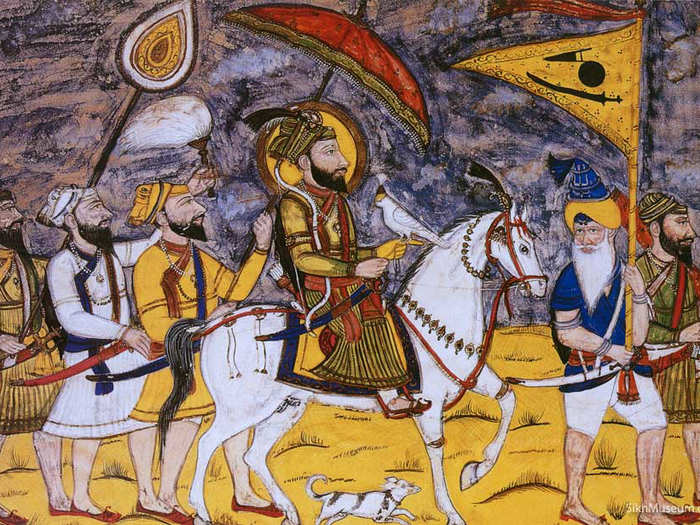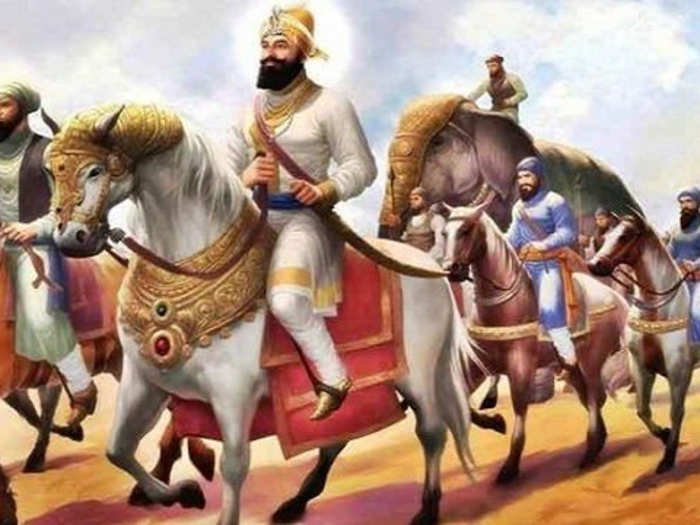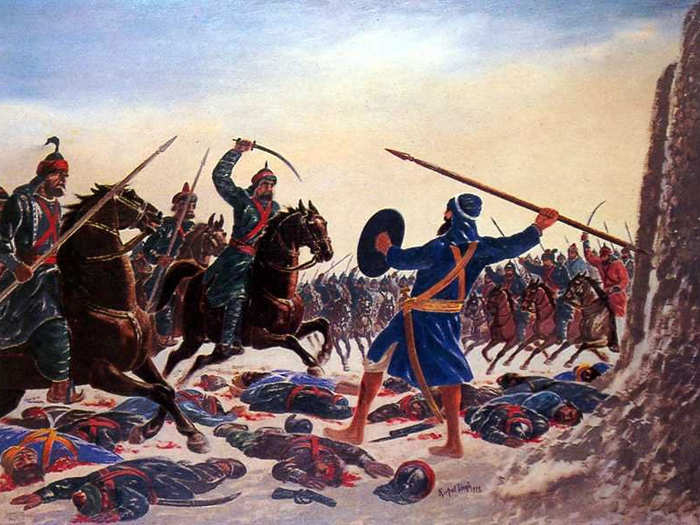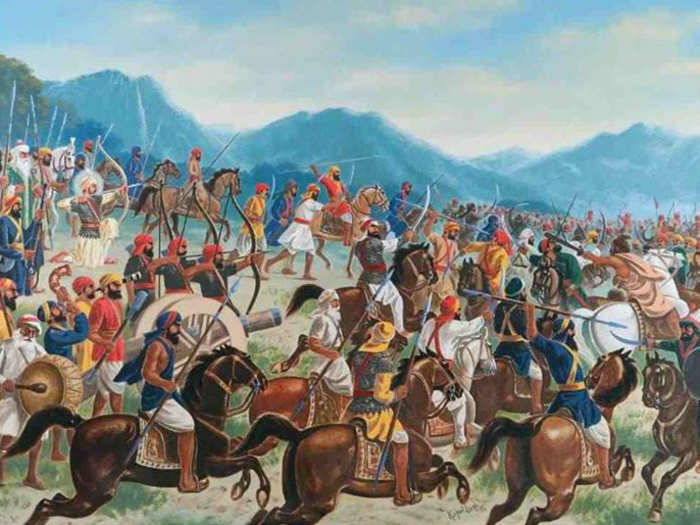Dharam Yudh relies on the principle that only minimum force needed for success should be used. Many armies around the world stand by the same principle today.
Guru Gobind Singh marching to battle (Source: CulturalIndia)
The US Army’s Field Manual lists ‘economy of force’ as one of its guiding principles. It means combat power should be employed in the most effective manner. India functions on a similar principle as well, only it’s called the ‘economy of effort’. Even the British and Russian army act on the same guideline.
Guru Gobind Singh was lauded during his time for being one of the few known leaders to provide first aid to the wounded on the battlefield irrespective for their affiliation. This is similar to the role the Red Cross plays in modern warfare.
Khalsa forces fighting the battle of Chimkaur (Source: NewsBharati)
Guru Gobind Singh was first among a few to say that soldiers who surrendered should not be harmed. While war crimes are recognized today, it was much less common in the 1600s.
Guru Gobind Singh's first fight, the battle of Bhangani (Source: SikhUnity)




